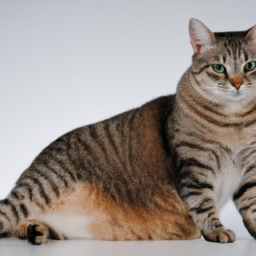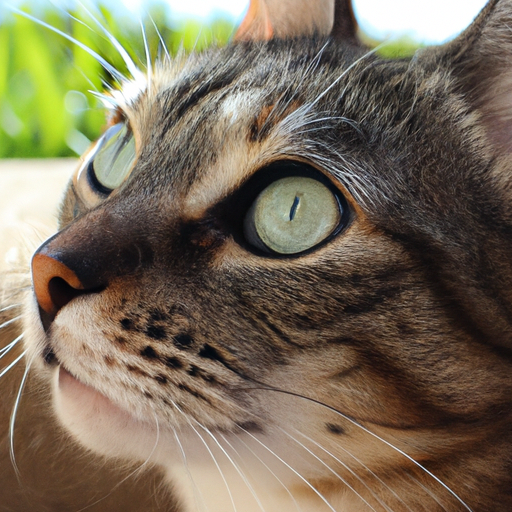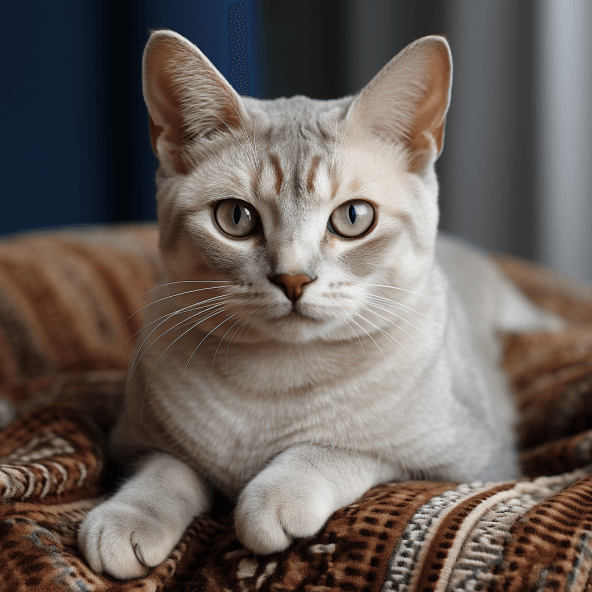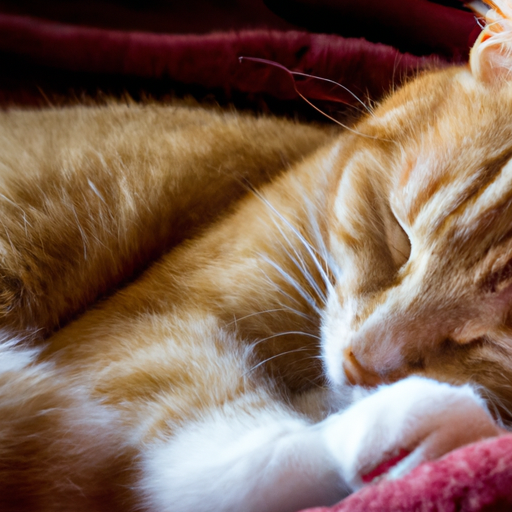How Long Are Cats Pregnant For?
You’re a proud pet parent, and if your beloved feline is expecting, you’re probably curious and perhaps even worried about her condition. In this insightful article called “How Long Are Cats Pregnant For,” we will disclose the typical gestation period for cats, shedding light on all the important stages and milestones of your pet’s pregnancy. Follow along as we journey down the intriguing path of feline reproduction, ensuring that you’re well-prepared to support your fur baby during this delicate time.

Understanding Feline Pregnancy
Understanding feline pregnancy can help you to ensure your cat (either a pet or a stray you’re caring for) has a healthy and safe pregnancy. In this guide, we will outline some common physical and behavioural changes that occur in pregnant cats.
Physical changes in pregnant cats
During pregnancy, cats undergo various physical changes. Just like in humans, their bellies will noticeably expand as the fetus grows inside them. This can be more evident around the last few weeks of their pregnancy. In addition to this, pregnant cats may also experience changes in their nipples which become larger and more prominent as they prepare for feeding their kittens. But remember, these changes can also occur in cats that are experiencing a false or ‘phantom’ pregnancy, so they’re not definitive signs of an actual pregnancy.
Behavioural changes in pregnant cats
Behavioural changes are also relatively common in expecting feline mothers. pregnant cats tend to eat more than usual due to the increased nutritional demand associated with fetal growth. They could also be more affectionate and seek out more attention, but some may prefer solitude and hide more often. Behavioral changes can vary widely between individual cats.
The Duration of a Cat’s Pregnancy
Understanding the duration of a cat’s pregnancy can be crucial for the health and well-being of both the mother and her unborn kittens.
Average gestation period
On average, a cat’s pregnancy lasts around 63 to 65 days. This roughly equates to just over two months.
Factors affecting gestation duration
Various factors can affect the duration of a cat’s pregnancy. These include the cat’s health, breed, and the number of kittens she is carrying. Larger breeds and cats carrying multiple kittens may have slightly longer pregnancies.
Stages of Feline Pregnancy
Let’s discuss the stages of feline pregnancy, which include fertilization, embryo development, foetal development, and preparation for birth.
First stage: Fertilization
Fertilization happens when sperm from a male cat meets with an egg from a female cat. For fertilization to occur, cats will have to mate multiple times.
Second stage: Embryo development
After fertilization, the embryos begin to develop. During this stage, cells divide rapidly, and within about one week, the embryos are implanted in the mother’s uterus.
Third stage: Foetal development
Following implantation, the foetus begins to develop organs, bones, and fur under the nourishment and protection of the mother. This is a critical stage in feline pregnancy, and the majority of the gestation period is spent in this stage.
Final stage: Preparation for birth
As the end of the gestation period approaches, the mother cat’s body prepares for birth. The mother may start to ‘nest’, seeking a safe and comfortable place to deliver her kittens.
Signs of Pregnancy in Cats
Recognising the signs of pregnancy in a cat can be somewhat tricky, especially in the early stages. Here are some tips on what to look out for.
Early signs of pregnancy
In the early stages of pregnancy, cats may display symptoms such as nausea, increased appetite, and weight gain. They may also start nesting behaviour. However, these signs can be quite subtle and easy to miss.
Visible physical changes
Visible physical changes can be more apparent during the mid to late stages of pregnancy. This includes a noticeable increase in abdominal size, prominent and pinkened nipples, and potential weight gain.
Gender-dependent signs of pregnancy
Gender-dependent signs are not particularly relevant in cats because unlike in humans, male and female cats do not exhibit different pregnancy signs.
Cat’s Pregnancy Timeline
Understanding the timeline of a cat’s pregnancy can help you take better care of your feline friend and prepare for the arrival of the kittens.
Week-by-week breakdown
A week-by-week breakdown of a cat’s pregnancy can look something like this:
- Week 1-2: Fertilization occurs.
- Week 3: The kittens implant in the uterus.
- Week 4: Morning sickness may occur.
- Week 5: Weight gain starts to become noticeable.
- Week 6: The mother cat’s belly expands.
- Week 7-9: The kittens move into position for birth.
Keep in mind, this timeline may vary slightly for different cats.
Identification of milestones
Certain milestones, like increased appetite, visible weight gain, and the kittens moving, signify crucial phases of a cat’s pregnancy.
Complications During Cat Pregnancy
Complications during a cat’s pregnancy can be dangerous for both the cat and her unborn kittens. It’s crucial to identify signs of potential complications and consult a vet when needed.
Common health issues
Common health issues during feline pregnancy include preterm labor or miscarriage, infections, and other complications like gestational diabetes.
How to identify complications
Signs of complications can include prolonged labor, decreased appetite, lethargy, abnormal vaginal discharge, or any other sudden changes in behavior.
When to consult a vet
If you notice any signs of complications or if your cat appears unwell, it’s always best to consult a vet right away.
Cat’s Pre-labor and Labor Stage
Understanding the pre-labor and labor stage of a cat’s pregnancy is essential for providing appropriate care and support.
Identifying pre-labor signs
Pre-labor signs can include loss of appetite, restlessness, seeking a quiet place to nest, and grooming excessively, especially around her hindquarters.
Understanding the birthing process
During labor, most cats will deliver their kittens without any intervention. However, it’s essential to be prepared and know what to expect, including normal labor duration and when to intervene if there are complications.
Caring for a Pregnant Cat
Proper care is vital for the health of a pregnant cat and her kittens.
Dietary needs
A pregnant cat has increased nutritional needs to support her growing kittens. It’s recommended to feed her a premium-quality kitten food throughout pregnancy and while nursing.
Physical exercise and comfort
Physical exercise should be gentle to prevent injury. Make sure she is comfortable and has a safe place to rest and eventually give birth.
Preparing for the kittens
Before the kittens arrive, make sure you have a quiet, safe space for your cat to give birth in and a box or basket lined with soft bedding.
Post-Pregnancy Care for Cats
Caring for a cat after giving birth is equally as crucial as caring for her during pregnancy.
Mom-cat’s health management
After giving birth, the mother’s body needs time to recover. Continue feeding her a nutrient-rich diet and monitor for signs of postpartum complications.
Caring for newborn kittens
Newborn kittens require a warm environment, regular feeding, and gentle handling. At around two weeks old, they’ll start to open their eyes and explore their environment.
Common Myths and Misconceptions about Cat Pregnancy
There are several myths and misconceptions about cat pregnancy that need to be debunked.
Debunking pregnancy duration myths
One common myth is that the duration of pregnancy in cats lasts for seven months. The gestation of cats, however, typically ranges only from 63 to 65 days
Misconceptions about cat pregnancy care
Another misconception is that you do not need to alter the cat’s diet during pregnancy. In reality, pregnant cats often need increased calorie intake to help support foetal development and maintain their health.
By understanding all these aspects of feline pregnancy, you can better care for your pregnant cat and ensure they go through a safe and healthy pregnancy. Always seek professional advice or assistance if you notice anything unusual about your cat’s behavior or health during her pregnancy.






